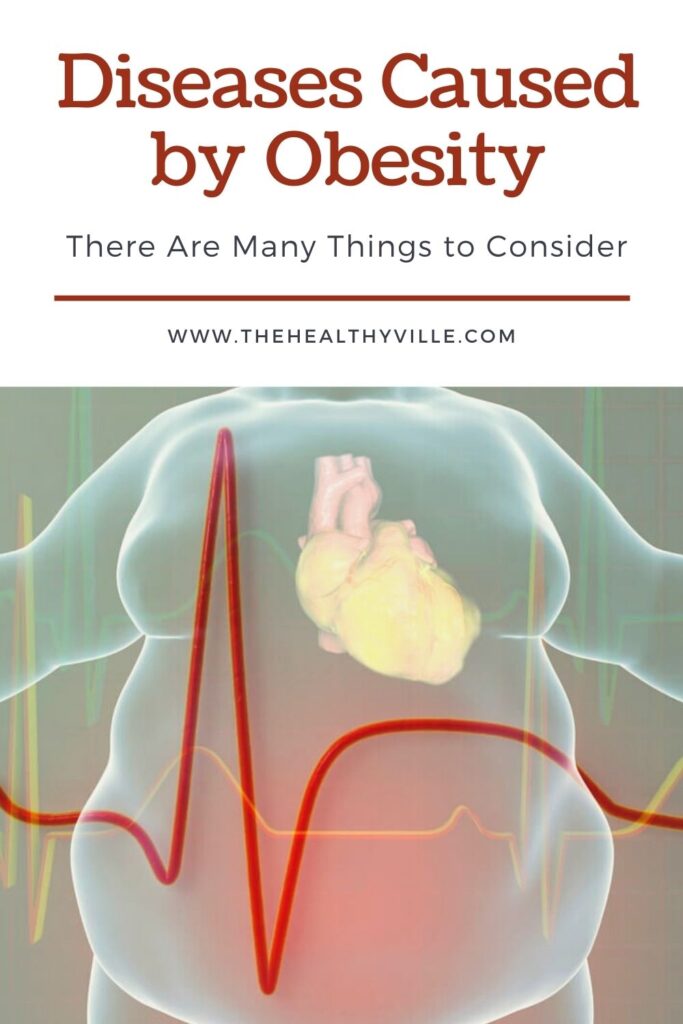The diseases caused by obesity can complicate things further, and you need to know how many you’re dealing with. Find out all about them!
Obesity reduces a person’s quality of life and lowers their hope by up to seven years. What diseases are related to it?
In general, both the diseases associated with obesity and its increasing incidence can be attributed to a sedentary lifestyle and inadequate nutrition.
Beyond the aesthetic or social limitations it imposes, obesity or excess weight is one of the main risk factors for the development of health problems. In fact, today it is considered a “global epidemic”.
This condition worsens the quality of life of any person. It can even directly or indirectly lead to death. If you want to know what diseases derive from it, read on.
What is obesity?
Obesity is a metabolic disorder that occurs when the number and size of adipocytes increases. To diagnose it, doctors measure Body Mass Index (BMI) and waist circumference.
BMI is the ratio of a person’s height to total weight. It is obtained by applying a mathematical equation, and it is said that one is at the ideal weight when the BMI is between 18 and 25. Likewise, if it is between 25 and 30 there is overweight; and, if it is higher than 30, there is obesity.
As an article published in 2014 by the National Cancer Institute explains:
A body mass index (BMI) between 30 and 35 corresponds to grade I obesity.
Between 35 and 40 is grade II obesity.
If the BMI exceeds 40, it is grade III obesity or morbid obesity (the most dangerous of all).
Main diseases caused by obesity
The research developed by the expert Pilar Orozco López in 2003 found that obese people reach fewer years of life. In fact, estimations are that it can decrease hope by up to 6 years in men, and up to 7 in women.
Along these lines, the main diseases associated with obesity are:
Arterial hypertension. Obesity generates insulin resistance, which leads to hyperinsulinism (high levels of insulin in the blood). In fact, in turn, this causes increased absorption of sodium in the kidneys. Therefore, the consequence is a continued increase in blood pressure.
Type 2 diabetes mellitus. This disease is characterized by an increase in glucose in the blood. Along these lines, it is said that those with a BMI greater than 32 have a three times greater risk of developing type 2 diabetes mellitus.
Stroke. Obesity causes plaques to form in the coronary arteries, the brain, and those that carry blood to the brain. Such plaques can dislodge and obstruct blood supply, leading to a stroke.
Hyperlipidaemia. Obese people have fat accumulation in adipose tissue, in the form of triglycerides. These pass into the blood and increase the risk of cardiovascular disease.
Cardiovascular disease. Obesity increases blood volume, diastolic volume, and cardiac output. In fact, this affects the left ventricle, predisposing to heart failure or sudden death.
Other diseases
The number and variety of diseases associated with obesity is wide. In addition, these can affect the physical, mental and social level.
Along these lines, the Center for Disease Control and Prevention includes other problems such as:
Fatty liver or cholelithiasis. Obese people are prone to fatty liver and bladder stones.
Osteoarthritis. Excess weight causes the joints to suffer. Hence, in some cases, obesity leads to the development of osteoarthritis or degenerative arthritis. In fact, it is also a cause of chronic back pain.
Sleep apnea syndrome. This problem causes a blockage of the passage of air through the airways while sleeping. In the long term, it can have serious consequences.
Infertility and difficulties in pregnancy. Excess fat in the ovaries and uterus facilitate the formation of fibroids. In fact, this can lead to fertility problems. Also, obese pregnant women are more likely to develop hypertension, eclampsia (seizures or coma), and diabetes.
Added to all this are functional and psychosocial difficulties. In this sense, sexual performance can be affected; as well as self-esteem and mood.
How to face the diseases associated with obesity?
As you have seen, this disease is increasing progressively worldwide. For this reason, modifying habits is the most effective weapon to deal with obesity.
A healthy lifestyle with a proper exercise routine will be the perfect allies. There are no excuses, if you have any doubts, consult your doctor to adapt the routine from today.
Don’t forget to SHARE the diseases caused by obesity with your friends and family on your social networks!

